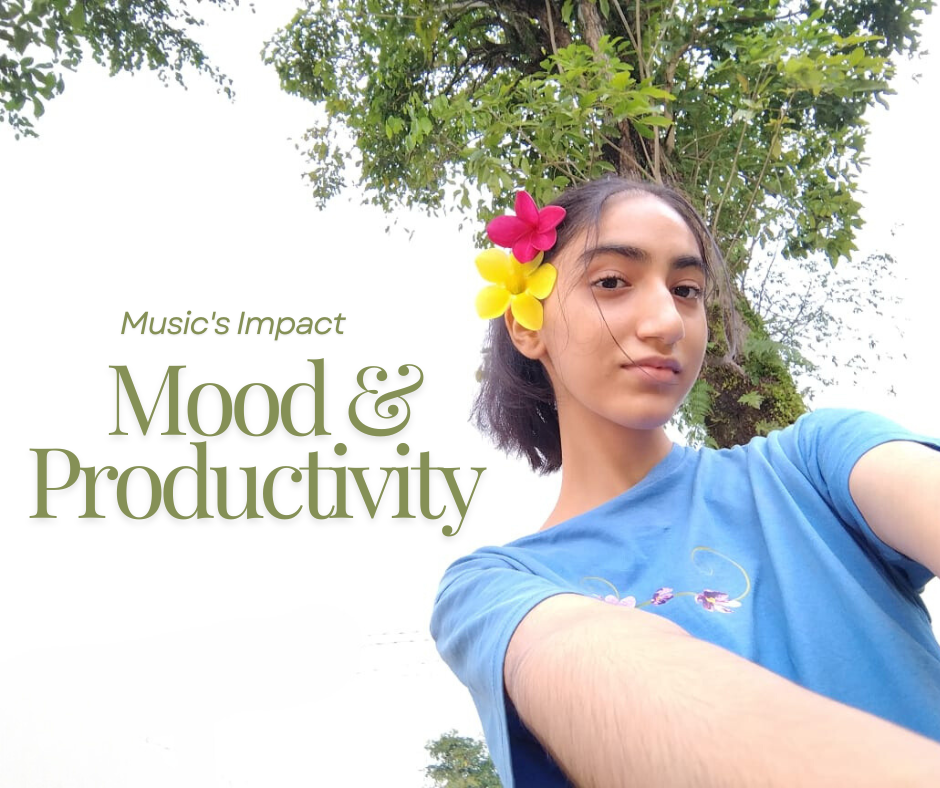From the rhythmic beats of a drum to the soothing melodies of a piano, music has been an integral part of human culture for millennia. But its significance transcends entertainment; it possesses a remarkable power to influence our mood and productivity. In this blog, we’ll explore the fascinating ways in which music can shape our emotions, boost our productivity, and enhance our overall well-being.
The Science of Sound and Emotion
Music’s ability to evoke emotions is deeply rooted in the science of sound. When we listen to music, our brains release a cascade of neurochemicals, including dopamine and serotonin, that contribute to our emotional state. Upbeat tunes can trigger feelings of happiness and motivation, while slower melodies might induce calm and relaxation.
Enhancing Mood with Music
- Elevating Positivity: Upbeat genres like pop, rock, and electronic dance music have a knack for elevating mood. They can trigger feelings of joy and excitement, making them ideal choices when you need a mental boost.
- Calm and Relaxation: On the flip side, classical, jazz, and ambient music can induce a sense of calm and relaxation. These genres are perfect for unwinding after a long day or when you’re looking to reduce stress.
- Empathy and Connection: Lyrically-driven songs, especially those that tell meaningful stories, can foster empathy and emotional connection. Listening to songs with relatable lyrics can help you process your own feelings and experiences.
Unlocking Productivity with the Right Soundtrack
Music’s impact on productivity is a subject of ongoing research, and the findings suggest that it can have a profound effect on our work performance:
- The Rhythm of Work: Fast-paced, rhythmic music with a moderate beat can improve focus and productivity. It can help you maintain a steady work pace, especially during tasks that require repetitive actions.
- Blocking Distractions: Music can act as a shield against distracting background noise. When you’re working in a noisy environment, using noise-canceling headphones and playing instrumental music can create a cocoon of concentration.
- Enhancing Creativity: For tasks that require creative thinking, such as brainstorming or problem-solving, instrumental music with a soft tempo can encourage divergent thinking and innovation.
Personalizing Your Playlist
The impact of music on mood and productivity is highly individual. What works wonders for one person might not have the same effect on another. Here are some tips for personalizing your music choices:
- Match the Tempo: Choose music with a tempo that complements your task. Fast-paced songs for energetic work, slower tunes for relaxation or reflection.
- Instrumental vs. Lyrics: Consider whether lyrics are helpful or distracting for the task at hand. Instrumental music is often a safe bet for minimizing distractions.
- Experiment and Adapt: Your preferences may change over time or depending on your mood. Be open to experimenting with different genres and playlists to find what works best for you.
Conclusion: The Soundtrack of Life
In the grand symphony of life, music plays the role of a versatile conductor, influencing our emotions, enhancing our productivity, and enriching our daily experiences. Whether you’re seeking motivation, solace, or simply a moment of joy, music has the power to be your faithful companion. So, next time you’re faced with a challenging task or a gloomy day, consider letting the right music be your guide, orchestrating a harmonious alchemy of mood and productivity.
